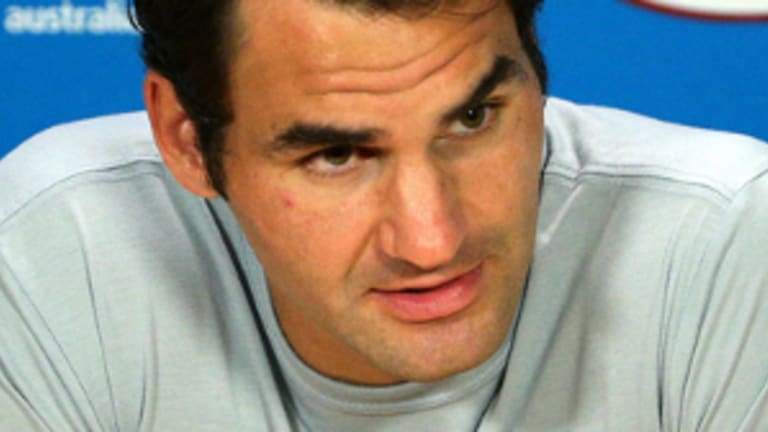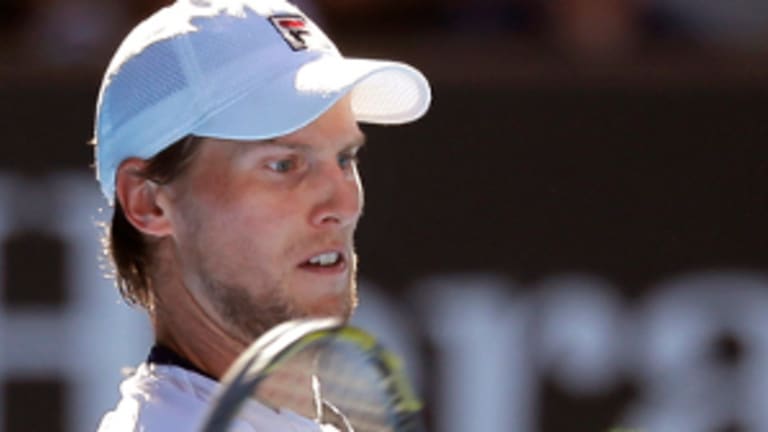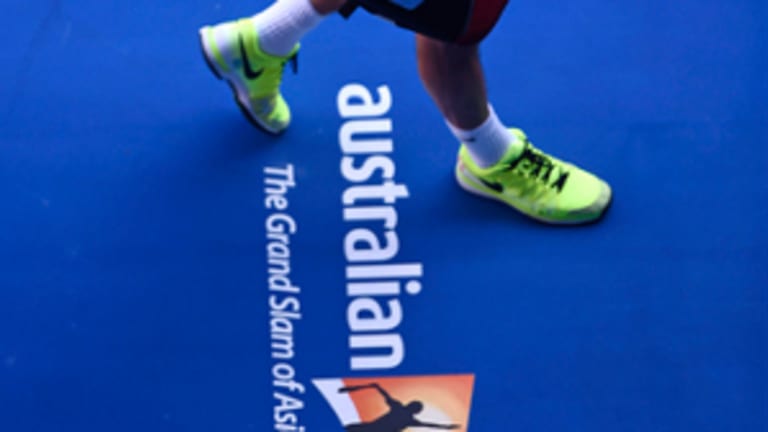Roger Federer once talked, after losing a final at the Australian Open, about the "monster" of expectations he had created for himself during his prime. That monster isn't quite as big or frightening as it once was, but Federer's success over the last year appears to have coaxed it back to life. Yesterday in Melbourne, after Federer lost his first match in 11 meetings against Andreas Seppi, 6-4, 7-6 (5), 4-6, 7-6 (5), everyone was ready with an excuse for him. Everyone, that is, except Federer himself.
A few minutes after he watched the Italian's final brilliant passing shot sail fatefully past him for a winner, Federer was greeted with this question in his press conference: “You didn’t look quite comfortable out there today, especially the first two sets. Was something going on, or just a bad day?”
This may have been a reference to Federer’s hand, which had bothered him earlier in the week, and which might have bothered him in this match as well—his nine double faults were more than his norm, though he also had 15 aces and actually won one more point than Seppi in total. Either way, Federer batted the idea of injury down.
“Just a bad day, yeah,” he said, “I wish I could have played better, but clearly it was tough losing the first two sets...I guess I won the wrong points out there today.”
Two questions later, another reporter took a different approach to helping Federer explain the result. You might call it “the other guy played out of his mind” theory.
“Do you think Seppi played his best match ever?” Federer didn’t bite on that one either.
“We had some good matches in the past,” he said. “He hits a good ball, forehand and backhand, so I knew that on a quicker court where he gets more help on the serve it was potentially going to be more tricky.”


